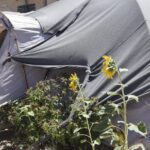
Encounters with Women Between War and the Everyday Revolution.
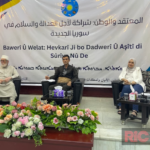
Rojava Information Center interviewed figures and structures associated with Islam in North and East Syria. They included members of the Democratic Islam Congress and Delal Khelil from the Council of Religions and Beliefs, both structures which RIC previously interviewed in 2020. RIC also spoke to Sheikh Murshid Khaznawi, the son of Sufi Sheikh Maashouq Khaznawi, who was tortured and assassinated by the former Ba’ath government in 2005.
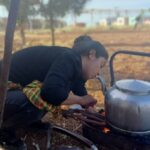
Jinwar is home to many different women that have decided to join the community for a variety of different reasons. Something that unites all of them is their search for a free life in communality and the wish to learn, to strengthen and develop as women. Some of them have lost their husbands in the war, or others have freed themselves from domestic violence or forced marriage. There are also Yazidi women who have begun a new life here after they were liberated from the enslavement of ISIS.
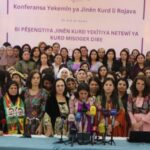
“With this conference, we are laying the foundation for a new history—the history of the unity of the Kurdish people, led by the vanguard of Kurdish women. Just as women in Rojava have been at the forefront in all fields, they are also leading the way in building a democratic Syria.” — Perwîn Yûsif (PYD)
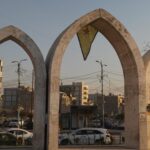
When we arrived in Rojava, the sun was shining and we had finally made it after a long journey. In the days that followed, we met many very inspiring women who told us about their revolutionary work. They gave us çay and sweets and their complete trust. Early in the morning we drove to Raqqa
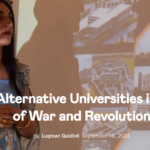
The Democratic Autonomous Administration of North-Eastern Syria (DAANES) is building an alternative education system under siege from multiple powers, defying the control of the Ba’athist education system of the Assad regime as well as the Turkish occupation forces and their proxies. The alternative system has accomplished such measures as the reintroduction of the Kurdish language for young students—drastically altering the way of life in the region. However, building institutions of higher education in an area where many native Kurds could not even have Syrian citizenship two decades ago poses a major challenge.
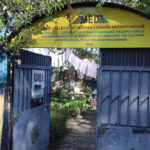
Two more people were taken into custody as part of the wave of repression against Kurdish language institutions. This brings the total number of people in custody from Kurdish cultural and language organizations to 31.
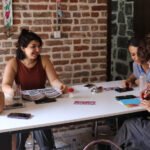
The Women's Association for Culture, Art and Literature (KASED) gets ready to provide new courses to women and children next week. “We can organize more activities together with women,” said Saliha Ayata.
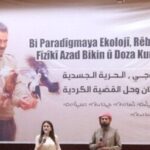
A new step toward the ecological revolution.
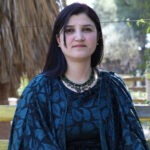
In this interview with ANF, Rûken Ehmed described the diplomatic work of the Kongra Star women's association in Northern and Eastern Syria: "We want to spread the Rojava Revolution to the outside world and reach women in the Middle East and Africa."
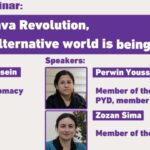
On the morning of 17 February, a session was held on “Rojava Revolution, an Alternative World Being Built in North and East Syria,” organized by the Civil Diplomacy Center in North and East Syria, in collaboration with the Kongra Star Women’s Movement and the Jineology Center. 50 people from all over the world participated online to learn about the methods of the people- and women-led revolution in North and East Syria.
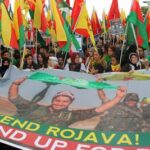
Today is the 25th of December.
At this moment, there are sounds of war planes in the air.












